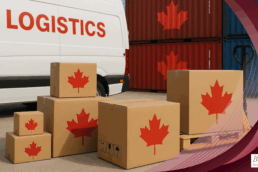
On August 17, 2015, USCIS released long-awaited final guidance on the adjudication of the L-1B classification, which permits multinational companies to transfer employees who possess “specialized knowledge” from the companies’ foreign operations to their U.S. operations. Previously, there was little consistent guidance on the definition of “specialized knowledge” and how L-1B petitioners could actually demonstrate that a beneficiary possesses this knowledge.
The new L-1B guidance is outlined in a memorandum (PM-602-0111) and effectively replaces previous portions of the Adjudicator’s Field Manual regarding L-1B adjudications. It will also be applied to all L-1B applications that are pending or filed on or after August 31, 2015.
As the memo indicates, employees who work in any industry and serve in any type of position can be classified as L-1B nonimmigrants if the prospective position in the U.S. requires specialized knowledge and the beneficiary is found to possess such knowledge. The L-1B petitioner must also demonstrate that the beneficiary has at least one continuous year of employment abroad in a specialized-knowledge capacity with the petitioning employer within the last three years.
“Specialized knowledge” can be demonstrated by establishing one of the following statutory criteria: a) that the beneficiary has a “special” knowledge of the company product and its application in international markets, or b) that the beneficiary has an “advanced” level of knowledge of the processes and procedures of the company.
The final guidance describes these two forms of knowledge as follows:
- special knowledge, which is knowledge of the petitioning organization’s product, service, research, equipment, techniques, management, or other interests and its application in international markets that is distinct or uncommon in comparison to that generally found in the particular industry
- advanced knowledge, which is knowledge of or expertise in the petitioning organization’s specific processes and procedures that is not commonly found in the relevant industry and is greatly developed or further along in progress, complexity and understanding than that generally found within the employer.
An L-1B beneficiary can possess either form of knowledge or both. To determine whether knowledge is “special” or “advanced,” one must compare the beneficiary’s knowledge against that of others. Additionally, a special emphasis must be placed on the beneficiary’s knowledge of the petitioning employer’s products and processes, not merely those common to a particular industry.
The memo also provides a non-exhaustive list of factors that USCIS may consider when determining whether one’s knowledge is “specialized.” It also sets forth suggested evidence that a petitioning employer can provide to further demonstrate a beneficiary’s specialized knowledge.
Berardi Immigration Law consistently monitors all newly issued guidance from USCIS and other related government agencies. By remaining intimately aware of the current trends and changes in immigration law, our clients are able to cross the border with confidence. If you believe you may qualify for the L-1B category, please call or email us today to schedule a consultation with our attorneys.
Related Posts
November 12, 2025
TN Success Story: Three-Year Approval for a Chemical Engineer
October 29, 2025
Success Story: Essential Logistics Specialist E-2 Employee Visa
Ready to have Berardi on your side?
Whether you’re a business looking to hire or a professional hoping to relocate, immigration law can be complicated. But you don’t have to do it alone. Put our experience to work for you.


